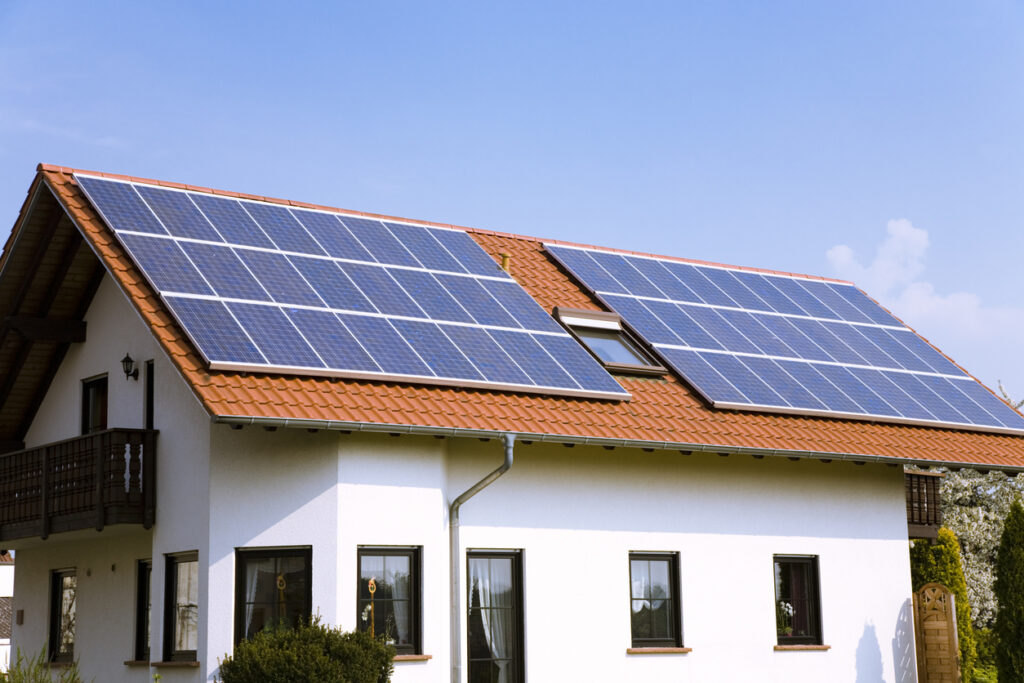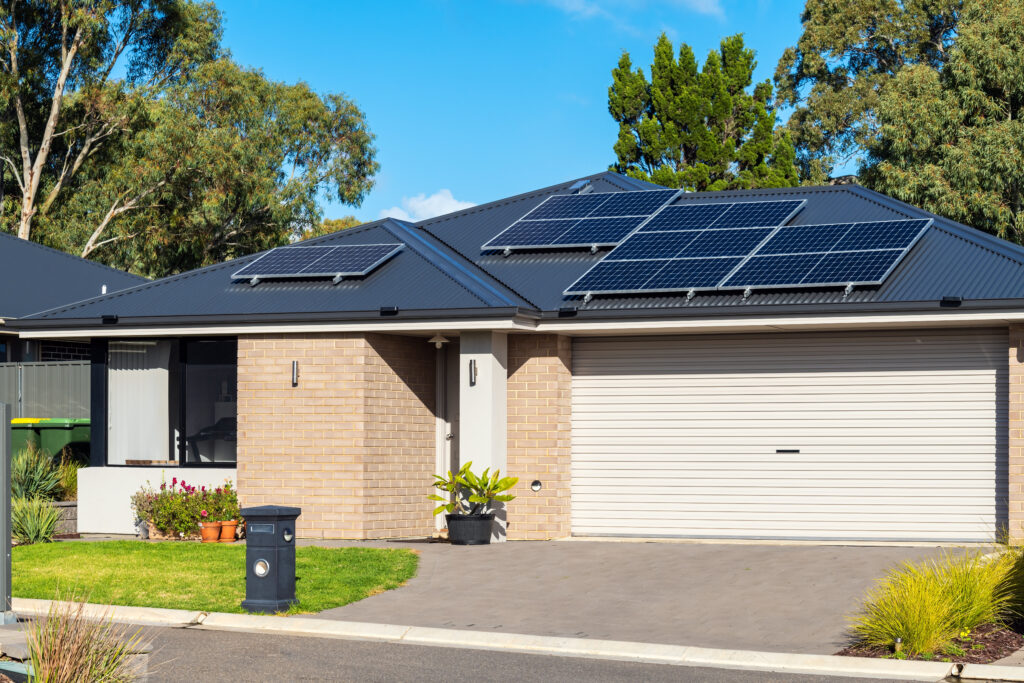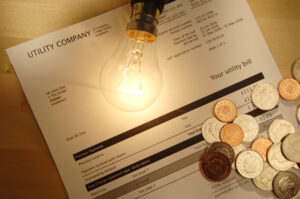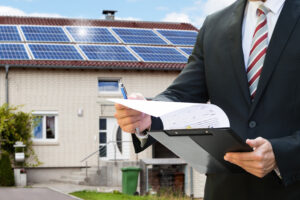August 13, 2024, NPR News — Ari Shapiro, Host, All Things Considered and Jeff Brady, Correspondent, NPR Climate Desk
 Andy Milz of Flitter Milz, a nationally recognized expert in solar panel finance fraud, was recently interviewed by NPR News for a nationally-aired report concluding — Rooftop solar has a fraud problem. Andy offers advice for avoiding sales fraud when considering solar panels for your home.
Andy Milz of Flitter Milz, a nationally recognized expert in solar panel finance fraud, was recently interviewed by NPR News for a nationally-aired report concluding — Rooftop solar has a fraud problem. Andy offers advice for avoiding sales fraud when considering solar panels for your home.
Click the link to listen to the program or read the program transcript below. https://www.npr.org/2024/08/13/nx-s1-4926495/thinking-about-solar-here-are-some-things-to-consider
NPR Transcript: “Thinking about solar? Here are some things to consider”
ARI SHAPIRO, HOST: Just the other day, I got a piece of mail telling me, your property qualifies for free solar panels. It had a photo of my house and everything – kind of creepy. This is a sign of something happening all over the country. Solar power is booming, and that helps meet the country’s climate goals. At the same time, customer complaints are also growing about the part of the industry that installs solar panels on homes. NPR’s Jeff Brady has spent the last few months looking into this. And, Jeff, what’s the big lesson that you’ve learned from your reporting?
JEFF BRADY, BYLINE: You know, the really big concern here is high-pressure sales. Not all companies use them, but if you’re thinking about solar power, you’re going to need to be prepared for that. And the example of this that really sticks with me is a 91-year-old man, Emanuel Minto. He immigrated from Jamaica. He retired as a machinist and paid off his house in northeast Philadelphia. When I visited him in his tidy front yard, Minto’s lawyer was there to meet me.
ANDY MILZ: Mr. Minto, Jeff Brady from NPR News.
BRADY: Hi – nice to meet you.
EMANUEL MINTO: Sir.
BRADY: A year and a half ago, Minto says, a door-to-door salesman approached him, offering a government program to help senior citizens save on their electric bills.
MINTO: So I said, well, that would be good.
BRADY: But there was no such program. Minto has solar panels, but a lawsuit claims the salesman created an email address for him and forged his name on an electronic contract for a 25-year loan for the installation. Now Minto also has a lien on his house.
That salesman worked for GraySquare Solar. Owner Tim Koontz disputes many of the facts in the case, though he confirms the salesman created an email address for Minto. Koontz says there are safeguards to prevent what Minto claims and accuses the elderly Minto of scamming him.
TIM KOONTZ: I feel like I’m the one being defrauded. I feel like this is a hustle to try and get money.
BRADY: Minto’s attorney, Andy Milz, says GraySquare didn’t even respond to the lawsuit, and a default was entered against it. Milz specializes in solar fraud and says many door-to-door salespeople carry an iPad with electronic contracts. He says, be careful because some dishonest salespeople have taken electronic initials and signatures and copied and pasted them to other contracts.
MILZ: Don’t be bullied into touching their device, whether it be an iPad or a cellular phone. Take the time to review the documents in the comfort of your own home.
BRADY: Milz says you can request a paper contract, and reputable solar salespeople won’t have a problem with this. Another person I talked with is Tiffani Krieg of Mesa, Ariz. She put off for a couple of months a salesperson who calls herself Solar Sandy. Then one evening, Krieg’s family was in their driveway, headed out to see a movie.
TIFFANI KRIEG: My husband looks at the rearview, and he’s like, oh, Sandy’s here. I’m like, Sandy? And she’s got her Range Rover parked, like, you know, making a T so we can’t get out of our driveway. So she jumps in the backseat, like, with the kids.
BRADY: Krieg says Sandy said to secure a low interest rate, the family had to act now. Consumer advocates say creating urgency is a common sales tactic, and you should never feel pressured to make a decision about such a big purchase. I talked with Solar Sandy, whose name is Sandra Cordero. She didn’t want to do a recorded interview. She disputes some of Krieg’s story and confirms a lot of it. Cordero says she didn’t do anything wrong and has hundreds of satisfied customers.
SHAPIRO: Reporting there from NPR’s Jeff Brady, who is still with us. Jeff, you are making me think I should not respond to that flyer I got in the mail. But what should a person do who might be interested in going solar but doesn’t want to get scammed? How do you find the salespeople who aren’t going to use high-pressure tactics?
BRADY: Well, you probably want to avoid the solar companies that find you, either, you know, at your front door or maybe at a local big-box store. They’re more likely to practice these high-pressure sales tactics. And some of these companies only do sales. A different company will actually install the panels. And the experts I talked with say it’s better to work directly with an installation company. They suggest you find someone that’s been in business in your community for years. A lot of these installers, they, you know, survive on word-of-mouth advertising. So you can ask neighbors and friends, people who already have solar panels, for recommendations.
SHAPIRO: If people aren’t getting government subsidies, these solar panels can be really expensive. What’s the best advice for people who are going to pay for this?
BRADY: Sure. Most people can’t afford to put out 20 or $30,000 for solar panels. So about 85% of these systems are financed. You need to get at least three quotes and ask each company to give you quotes for financing and for paying cash. You want to compare those numbers because some companies include hidden fees in the cost of a system just so they can offer a cheap interest rate. And these fees, they’re significant. The solar marketing firm EnergySage says fees for the most popular loan averaged 47% for the last half of 2023.
SHAPIRO: Wow.
BRADY: Yeah, that adds thousands of dollars in cost, even if the interest rate you get is relatively low, so you may be better off finding financing on your own.
SHAPIRO: But there are federal tax credits to help pay for solar panels, right? How do those work?
BRADY: Yeah, the federal government offers a 30% tax credit, and some states have incentives on top of that. But one thing about tax credits – you need to owe taxes to take advantage of them, and not all salespeople will tell you that. Cameron Holly in the Dallas area learned this. He expected a check from the IRS for about $14,000, but his family didn’t owe that much in taxes, so he only got back about 2,500.
CAMERON HOLLY: Honestly, I do feel deceived, you know, because the way it was always worded in our conversations with the salespeople was that we would get this tax credit on our next filing.
BRADY: And Holly says he planned to use that money to pay off credit cards and take a family vacation. So the best advice is, you know, talk with the tax person rather than a salesperson about these tax credits.
SHAPIRO: And what if someone listens to this and decides solar is not right for them, or they live in a rental and can’t install solar? What then?
BRADY: Yeah, solar is not right for a lot of us. My house is surrounded by big trees that shade the roof, so solar won’t work here. You know, if helping climate change and saving money are your goals, you can try using less energy, and if the options out there today aren’t right for you, they might be next year, so keep checking in. The energy world is changing fast right now.
SHAPIRO: That’s Jeff Brady of NPR’s climate desk. Thank you.
BRADY: Thank you.
Seek Qualified Legal Help

Flitter Milz attorneys have helped hundreds of families who have been victimized by shady solar sales. If you have been defrauded in a solar sale, we may be able to help. Hidden contracts, forged signatures, illicit credit inquiries, suspicious email accounts, elder exploitation, and other bad acts can give rise for a case under the consumer protection laws. Contact us!

 Some common traps could leave you stuck with a bad deal for decades when entering a contract for solar panels. Nationally recognized consumer protection attorney Andy Milz of Flitter Milz in Narberth, PA, was interviewed recently on CNET for an article and offered 4 Financial Red Flags to potential solar panel customers.
Some common traps could leave you stuck with a bad deal for decades when entering a contract for solar panels. Nationally recognized consumer protection attorney Andy Milz of Flitter Milz in Narberth, PA, was interviewed recently on CNET for an article and offered 4 Financial Red Flags to potential solar panel customers. Our firm gets a lot of calls from consumers who are senior citizens, or from their children, after they have realized that the “free” solar panel deal they were promised is nothing of the sort.
Our firm gets a lot of calls from consumers who are senior citizens, or from their children, after they have realized that the “free” solar panel deal they were promised is nothing of the sort. Every week, we hear similar complaints from consumers who met with a solar sales representative and felt taken. Statements such as the following may be deceptive or outright false:
Every week, we hear similar complaints from consumers who met with a solar sales representative and felt taken. Statements such as the following may be deceptive or outright false: Salespeople are likely to tout a 30% federal solar tax credit (for 2023). Consumers must be careful, this is not cash or a refund, but rather a tax credit to count against the taxes you pay. Some seniors pay only minimal taxes or no taxes at all (if, for instance, their sole income is Social Security) and may not benefit at all from this promised “government program.” Other times, the company keeps the tax credit for itself.
Salespeople are likely to tout a 30% federal solar tax credit (for 2023). Consumers must be careful, this is not cash or a refund, but rather a tax credit to count against the taxes you pay. Some seniors pay only minimal taxes or no taxes at all (if, for instance, their sole income is Social Security) and may not benefit at all from this promised “government program.” Other times, the company keeps the tax credit for itself. Salesmen also like to tout a “no cost installation” or “no upfront cost” because this makes it sound like the consumer is getting the solar panels for free. That is not the case. With programs like solar leases or power purchase agreements (PPAs), it is the solar company, not the consumer, who owns the panels that are installed on the roof.
Salesmen also like to tout a “no cost installation” or “no upfront cost” because this makes it sound like the consumer is getting the solar panels for free. That is not the case. With programs like solar leases or power purchase agreements (PPAs), it is the solar company, not the consumer, who owns the panels that are installed on the roof. While the solar company may not charge upfront for the panels and the installation, the consumer is bound to pay for the energy that’s produced by the panels at ever-increasing rates – sometimes for 25-years or more – forcing some elderly consumers to pay expensive rates until they’re over 100 years old. All the while, they are still obligated to pay their electric bill.
While the solar company may not charge upfront for the panels and the installation, the consumer is bound to pay for the energy that’s produced by the panels at ever-increasing rates – sometimes for 25-years or more – forcing some elderly consumers to pay expensive rates until they’re over 100 years old. All the while, they are still obligated to pay their electric bill. Solar sales can be expensive and burdensome to consumers. Solar salesmen know this, and that’s why they use electronically displayed and signed contract documents (instead of a paper contract that you hold and keep) with deceptive language to hide the agreement from elderly consumers by using a bum email address or making up an email address that only the sellers control.
Solar sales can be expensive and burdensome to consumers. Solar salesmen know this, and that’s why they use electronically displayed and signed contract documents (instead of a paper contract that you hold and keep) with deceptive language to hide the agreement from elderly consumers by using a bum email address or making up an email address that only the sellers control.

 Maybe you aren’t completely sold on solar panels, and simply want more information about switching to solar power. Beware. At this point of the presentation, the salesperson may casually suggest that you submit an application, just to see whether or not you qualify for solar panels. You’ll be offered an iPad or tablet to sign, and be told not to worry because you’ll receive copies of all documents by email.
Maybe you aren’t completely sold on solar panels, and simply want more information about switching to solar power. Beware. At this point of the presentation, the salesperson may casually suggest that you submit an application, just to see whether or not you qualify for solar panels. You’ll be offered an iPad or tablet to sign, and be told not to worry because you’ll receive copies of all documents by email. Placing your signature or initials on an iPad, tablet, or phone may seem easy. However, your electronic signature or initials may be copied and affixed to a contract or other forms that you did not intend.
Placing your signature or initials on an iPad, tablet, or phone may seem easy. However, your electronic signature or initials may be copied and affixed to a contract or other forms that you did not intend. Solar companies rely on financing to make solar panels available to consumers. Credit reports are accessed to evaluate a potential customer’s creditworthiness. The consumer must provide written permission for the solar company to obtain these reports.
Solar companies rely on financing to make solar panels available to consumers. Credit reports are accessed to evaluate a potential customer’s creditworthiness. The consumer must provide written permission for the solar company to obtain these reports. Solar panels will be free.
Solar panels will be free. Many times, the solar panel company may not want to sell you the panels. If you, the buyer, purchases the panels, you would receive the tax credit, not the solar company. If the solar company leases you panels and only promises to sell you the solar power, the solar sales company may receive the tax credit, not you, the homeowner.
Many times, the solar panel company may not want to sell you the panels. If you, the buyer, purchases the panels, you would receive the tax credit, not the solar company. If the solar company leases you panels and only promises to sell you the solar power, the solar sales company may receive the tax credit, not you, the homeowner. Your Neighbors Are Doing It!
Your Neighbors Are Doing It! Flitter Milz is a nationally recognized consumer protection law firm that evaluates solar panel sales matters for potential violation of the consumer protection laws involving fraud, such as forged contracts, identity theft and credit reporting privacy violations.
Flitter Milz is a nationally recognized consumer protection law firm that evaluates solar panel sales matters for potential violation of the consumer protection laws involving fraud, such as forged contracts, identity theft and credit reporting privacy violations. 
 In online complaints, Titan Solar has been accused of engaging in predatory marketing and of misrepresenting facts. Sometimes, Titan Solar is accused of not informing the customer that installation is conditioned upon agreeing to a decades-long loan or power purchase agreement, and the contract might be hidden from the consumer. Titan Solar’s finance company partner may also pull your
In online complaints, Titan Solar has been accused of engaging in predatory marketing and of misrepresenting facts. Sometimes, Titan Solar is accused of not informing the customer that installation is conditioned upon agreeing to a decades-long loan or power purchase agreement, and the contract might be hidden from the consumer. Titan Solar’s finance company partner may also pull your  some other legitimate business purpose for pulling your credit. Often, during the process of applying for new credit or utilities, or interviewing with a prospective employer or landlord, there may be a request to access the consumer’s credit file. The consumer must provide written permission for his or her credit file to be accessed.
some other legitimate business purpose for pulling your credit. Often, during the process of applying for new credit or utilities, or interviewing with a prospective employer or landlord, there may be a request to access the consumer’s credit file. The consumer must provide written permission for his or her credit file to be accessed. Lenders evaluate the number of hard inquiries that appear on a consumer’s credit reports during the credit application review process. Although hard inquiries represent one factor in the calculation of credit scores, too many hard inquiries in a short time could impact scores negatively and jeopardize the approval of a new credit application.
Lenders evaluate the number of hard inquiries that appear on a consumer’s credit reports during the credit application review process. Although hard inquiries represent one factor in the calculation of credit scores, too many hard inquiries in a short time could impact scores negatively and jeopardize the approval of a new credit application.
 Similar to purchasing other items for the home, when considering solar panels, homeowners must shop around, get quotes, and investigate solar panel companies to compare one offer from another. There are a wide variety of products on the market with varying levels of efficiency, durability, reliability, output and design. As well, there are a number of solar companies and installers — some are better than others. Check the company’s reputation to see if complaints been filed against them with the Federal Trade Commission, State Attorney General, or Better Business Bureau? Also, searching court dockets for lawsuits that have been filed against solar panel companies or their finance companies may provide insight to issues that other consumer’s have faced involving solar transactions.
Similar to purchasing other items for the home, when considering solar panels, homeowners must shop around, get quotes, and investigate solar panel companies to compare one offer from another. There are a wide variety of products on the market with varying levels of efficiency, durability, reliability, output and design. As well, there are a number of solar companies and installers — some are better than others. Check the company’s reputation to see if complaints been filed against them with the Federal Trade Commission, State Attorney General, or Better Business Bureau? Also, searching court dockets for lawsuits that have been filed against solar panel companies or their finance companies may provide insight to issues that other consumer’s have faced involving solar transactions. of the benefits of solar power, the consumer is presented an iPad or tablet to sign, believing their signature gives the salesman permission to evaluate the property for panels. However, the signature, or initials, on an iPad may authorize the solar company, without the consumer’s knowledge, to:
of the benefits of solar power, the consumer is presented an iPad or tablet to sign, believing their signature gives the salesman permission to evaluate the property for panels. However, the signature, or initials, on an iPad may authorize the solar company, without the consumer’s knowledge, to: Solar loans work like other home improvement loans. The loan is taken out through a finance company with monthly payments made to the lender for the purchase of the system. Just like researching the solar company, homeowners must research the best way to finance the solar power system. There are several companies, such as Goodleap, Mosaic, or Sunlight Financial, that offer loans for solar panels. But ask yourself, which one offers the best terms for me?
Solar loans work like other home improvement loans. The loan is taken out through a finance company with monthly payments made to the lender for the purchase of the system. Just like researching the solar company, homeowners must research the best way to finance the solar power system. There are several companies, such as Goodleap, Mosaic, or Sunlight Financial, that offer loans for solar panels. But ask yourself, which one offers the best terms for me? to-door sales companies who sometimes entice people to sign up for “free” solar panels. Hundreds of consumers have complained about Loanpal/Goodleap’s business practices to the Better Business Bureau. The Better Business Bureau has rated Loanpal an “F.” From customer reviews, Loanpal received only one out of five stars. In fact, some consumers complain that they never saw or signed a contract. When faced with accusations that the solar panel salesperson engaged in fraud — such as signing up a consumer for a loan without their knowledge or consent — Goodleap has attempted to distance itself from the solar panel company.
to-door sales companies who sometimes entice people to sign up for “free” solar panels. Hundreds of consumers have complained about Loanpal/Goodleap’s business practices to the Better Business Bureau. The Better Business Bureau has rated Loanpal an “F.” From customer reviews, Loanpal received only one out of five stars. In fact, some consumers complain that they never saw or signed a contract. When faced with accusations that the solar panel salesperson engaged in fraud — such as signing up a consumer for a loan without their knowledge or consent — Goodleap has attempted to distance itself from the solar panel company.
 Before contacting a solar sales company, the homeowner should take time to evaluate whether adding solar panels to the home would provide enough financial benefit, plus meet the energy needs of the household. Factors for consideration are: house size, roof — condition and dimensions, climate zone, community regulations, local electricity rates and government incentives. As well, the homeowner may contemplate the following:
Before contacting a solar sales company, the homeowner should take time to evaluate whether adding solar panels to the home would provide enough financial benefit, plus meet the energy needs of the household. Factors for consideration are: house size, roof — condition and dimensions, climate zone, community regulations, local electricity rates and government incentives. As well, the homeowner may contemplate the following: Determine ways that may reduce the current expense such as, changing light bulbs; installing dimmers; fixing a leaking faucet; repairing ductwork. Understand your cost of energy and how much you might save by changing to solar.
Determine ways that may reduce the current expense such as, changing light bulbs; installing dimmers; fixing a leaking faucet; repairing ductwork. Understand your cost of energy and how much you might save by changing to solar. Evaluate the sun’s path during daylight hours. How many hours of the day does the roof get sunlight? Calculate the number of hours that your roof is shaded. Does the sun/shade ratio change from season-to-season? Would solar panels provide the same benefit throughout the year?
Evaluate the sun’s path during daylight hours. How many hours of the day does the roof get sunlight? Calculate the number of hours that your roof is shaded. Does the sun/shade ratio change from season-to-season? Would solar panels provide the same benefit throughout the year? Does the roof and/or shingles require repair or replacement before installation of panels? Will the roof handle the weight of solar panels? Shall I contact an independent roofer to evaluate the roof’s condition?
Does the roof and/or shingles require repair or replacement before installation of panels? Will the roof handle the weight of solar panels? Shall I contact an independent roofer to evaluate the roof’s condition? Review landscaping around the property for sun exposure to the roof. Will panels get enough sunlight to perform at maximum efficiency? Consult with an arborist to estimate tree growth over a 25 year period and the impact of sunlight over the seasons. Will trees require removal or transplant?
Review landscaping around the property for sun exposure to the roof. Will panels get enough sunlight to perform at maximum efficiency? Consult with an arborist to estimate tree growth over a 25 year period and the impact of sunlight over the seasons. Will trees require removal or transplant? Before entering an agreement for a solar power system, whether as an initial purchase, refinancing an existing contract, or purchasing a home with an existing system, you, the consumer, must obtain a copy of the solar panel contract. Take time to review the terms of the agreement. If you need clarification, consult with a real estate agent or real estate attorney for explanation of your legal and financial obligation. Determine whether this agreement is right for you by evaluating:
Before entering an agreement for a solar power system, whether as an initial purchase, refinancing an existing contract, or purchasing a home with an existing system, you, the consumer, must obtain a copy of the solar panel contract. Take time to review the terms of the agreement. If you need clarification, consult with a real estate agent or real estate attorney for explanation of your legal and financial obligation. Determine whether this agreement is right for you by evaluating: There may be a knock on your door by a friendly solar panel sales representative. You may be informed of the benefits of solar power and that by choosing to get panels for your home they would be ‘free’.
There may be a knock on your door by a friendly solar panel sales representative. You may be informed of the benefits of solar power and that by choosing to get panels for your home they would be ‘free’. A solar company sales representative may inform you that by signing up for solar power, you won’t have to pay for the panels themselves — they will be given to you for free.
A solar company sales representative may inform you that by signing up for solar power, you won’t have to pay for the panels themselves — they will be given to you for free. Because both of these types of arrangements – a lease and a PPA – involve paying for electricity-generating equipment over a lengthy contract period, those ‘free’ panels that you were promised may be anything but. Once installed on your home’s roof, you will still end up paying toward an entire system that is leased or rented, for a number of years. In the end, the savings you may reap from the solar generated electricity itself may not be enough to make up for those ‘free’ panels.
Because both of these types of arrangements – a lease and a PPA – involve paying for electricity-generating equipment over a lengthy contract period, those ‘free’ panels that you were promised may be anything but. Once installed on your home’s roof, you will still end up paying toward an entire system that is leased or rented, for a number of years. In the end, the savings you may reap from the solar generated electricity itself may not be enough to make up for those ‘free’ panels. Many door-to-door solar sales representatives often ask the consumer to make quick, on-the-spot decisions about obtaining solar power for the home. It is not unusual for the homeowner to feel pressured and the need to act immediately.
Many door-to-door solar sales representatives often ask the consumer to make quick, on-the-spot decisions about obtaining solar power for the home. It is not unusual for the homeowner to feel pressured and the need to act immediately. Flitter Milz is a nationally recognized consumer protection law firm experienced in evaluating fraudulent sales tactics, such as forgery, identity theft and unauthorized credit pulls by solar panel salesmen. If you feel as though you may have been
Flitter Milz is a nationally recognized consumer protection law firm experienced in evaluating fraudulent sales tactics, such as forgery, identity theft and unauthorized credit pulls by solar panel salesmen. If you feel as though you may have been 







